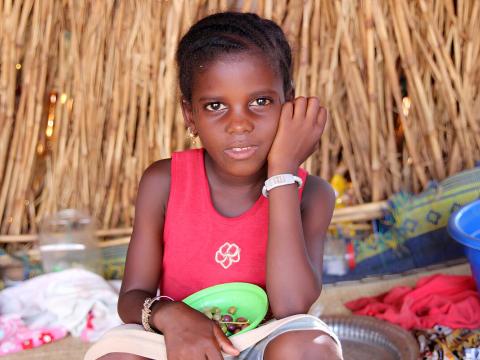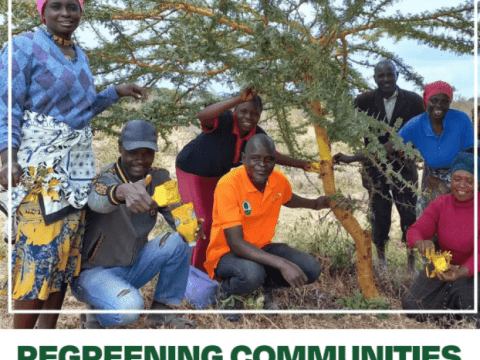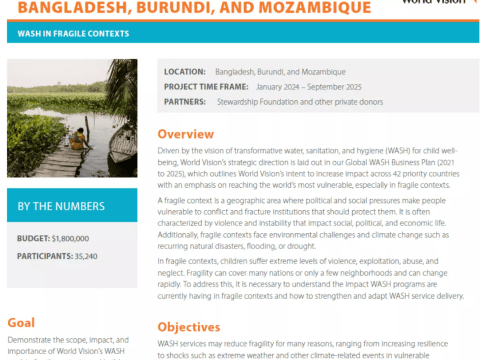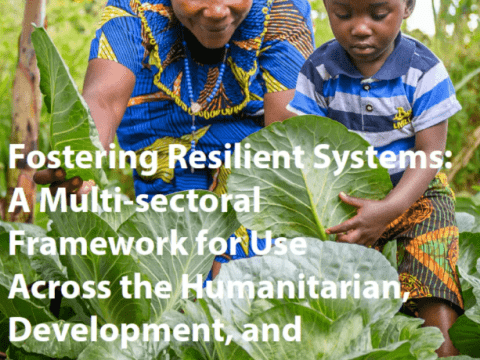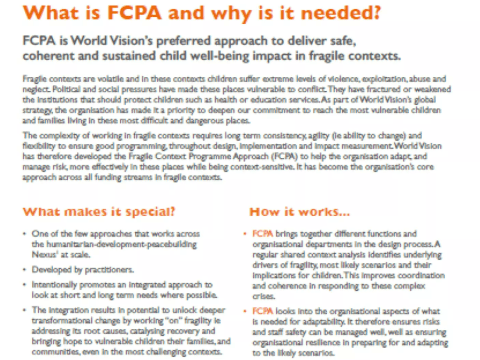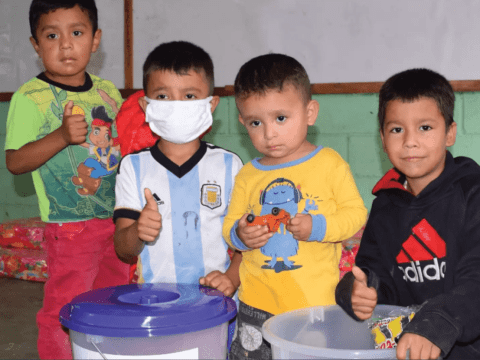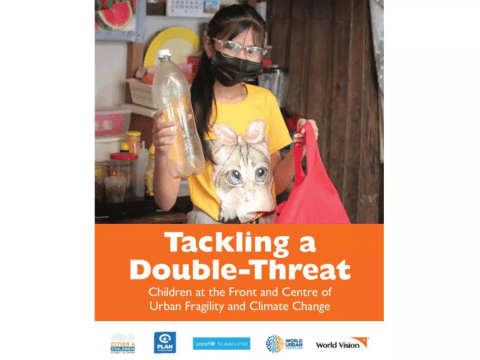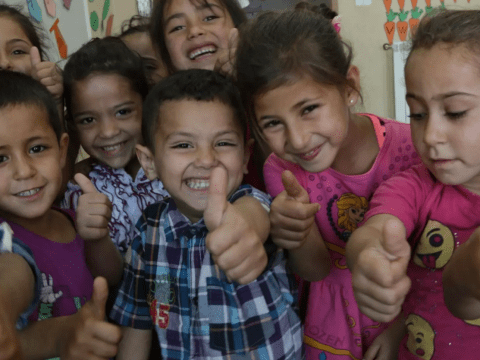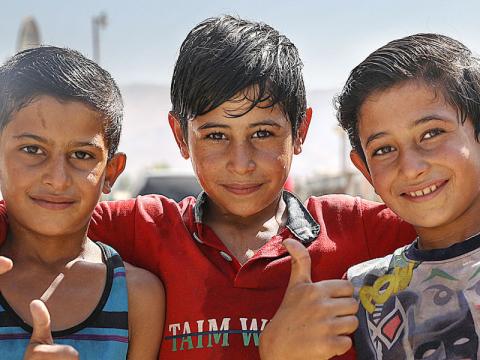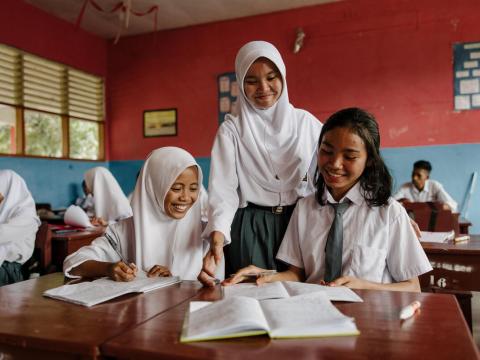Fragile Contexts Programming
By 2030, two-thirds of the world's poorest people will live in fragile contexts where governance, security, and social systems are very weak. In these regions, children are at high risk of exploitation, malnutrition, violence, early marriage, and being denied their basic rights.
We are dedicated to helping the world's most vulnerable children and families. By being flexible and sensitive to conflicts in fragile areas, we can meet immediate needs and work toward long-term solutions. This helps communities build resilience and break the cycles of poverty and conflict.
Through partnerships with community stakeholders, local civil society, churches, and other faith organisations, we address the root causes of fragility. Our goal is to ensure that children not only survive but also recover and thrive in challenging environments.
Our Impact
Our Approaches
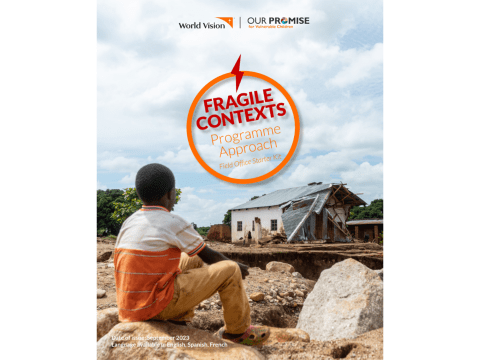
Fragile Context Programme Approach
The Fragile Context Programme Approach (FCPA) is World Vision's method for adaptive programming in fragile areas. It aims to address immediate survival needs and build a better future for vulnerable children and families. Working in these challenging environments requires long-term consistency, agility (ability to change), and flexibility to ensure effective programming throughout design, implementation, and impact measurement. World Vision developed the FCPA to help the organization adapt and manage risks more effectively while being sensitive to the specific context.
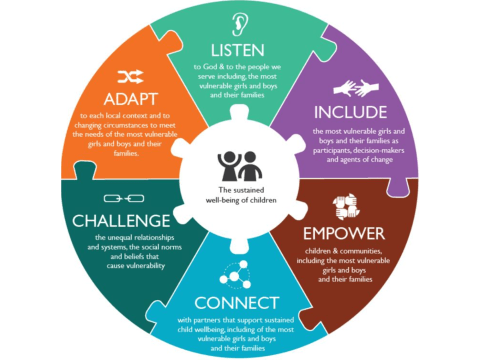
Transformational Development
Transformational Development is how World Vision responds to poverty and vulnerability and works towards a vision of “life in all its fullness” for every child in every context. This means girls and boys living abundant lives within transformed families, communities and societies characterised by dignity, justice, peace and hope, as we believe God intended. The principles of transformational development apply to all World Vision’s work – including relief, development and advocacy activities. Six principles underpin our Transformational Development work, informing our understanding of good practice in development, relief and advocacy work, and driving our programme quality standards: listen, include, empower, connect, challenge, and adapt.
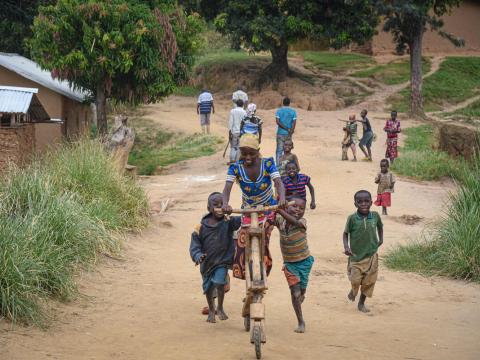
The Adaptive Programme Approach
The Adaptive Programme Approach (APA) is an evolution of World Vision’s Development Programme Approach (DPA). Nexus principles are integrated into the APA to ensure World Vision teams always work effectively with partners in complex contexts to achieve resilience and lasting transformation in the lives of children, families and their communities to the degree possible. The APA helps World Vision to; understand the context and how it is likely to change; use reactive and proactive frontline risk management and decision-making based on real-time context monitoring; and finally, empower frontline programme staff, local actors, and partners to make decisions and adjust activities and budgets as required when risks and opportunities change.
Featured Content
Frequently Asked Questions
What is fragile context programming?
Fragile context programming supports communities in places where crises happen often or strike suddenly, where government systems may be weak, and where the risk of conflict or disaster is high. The goal is to design interventions (combining humanitarian assistance, long-term development, and peacebuilding efforts) that are flexible, inclusive, responsive, and sensitive to the unique and often rapidly changing challenges in these settings.
Why does your organisation work in fragile contexts?
By 2030, two-thirds of the world's poorest people will live in fragile contexts where governance, security, and social systems are weak. In these regions, children are at high risk of exploitation, malnutrition, violence, early marriage, and being denied their basic rights. We are dedicated to helping the world's most vulnerable children and families so that they can survive, recover, and thrive in challenging contexts.
How do you ensure the safety of your staff and beneficiaries?
Our staff receive specialised training to recognise and respond to safety risks in fragile environments, for themselves and the people they serve. By continuously monitoring safety throughout each programme, our teams can adapt quickly and make informed decisions to protect everyone involved, based on the unique challenges of each context.
How are programmes adapted to fragile environments?
The Fragile Context Programme Approach (FCPA) is World Vision’s flexible, agile model for working in fragile settings. It helps meet urgent survival needs while building a path to long-term stability for vulnerable children and families. The FCPA supports immediate protection and long-term resilience by bridging humanitarian assistance, development, and peacebuilding efforts. It focuses on working in fragility—saving lives and protecting rights—and on fragility—addressing root causes to foster peace and stability.
How do you involve local communities in your programmes?
We engage local communities from the very start, ensuring programmes reflect real needs and build on local strengths. This close collaboration continues throughout our programmes and helps us better understand each unique context and how it may shift depending on its level of fragility.
Do you work with local partners?
Yes, we partner with community leaders, civil society groups, and faith-based organisations to co-create solutions that reflect local priorities and realities while building their capacity. Localisation allows for flexible decision-making and adjustments to activities and budgets as risks and opportunities evolve, helping build resilience and lasting change for children and their communities.
How do you measure success in fragile contexts?
In fragile contexts, we track success using three types of indicators. Programme indicators show progress on activities and goals. Quality and accountability indicators ensure community voices are heard and acted on. Context indicators help us monitor changes in fragility so we can adapt our approach as needed. They also help us understand the impact we are having on the context.
How do you ensure transparency and accountability?
We follow a structured Programme Accountability Framework that outlines standards for transparency, participation, and responsiveness. This includes commitments to international standards like the Humanitarian Accountability Partnership and the Do No Harm framework.
How are these programmes funded?
Our work in fragile contexts is supported by a mix of public and private funding, including grants. This blend gives us the stability to plan ahead, while staying flexible enough to respond quickly when situations change.
How can I support your work in fragile contexts?
To support our work in fragile contexts, you can donate here.
